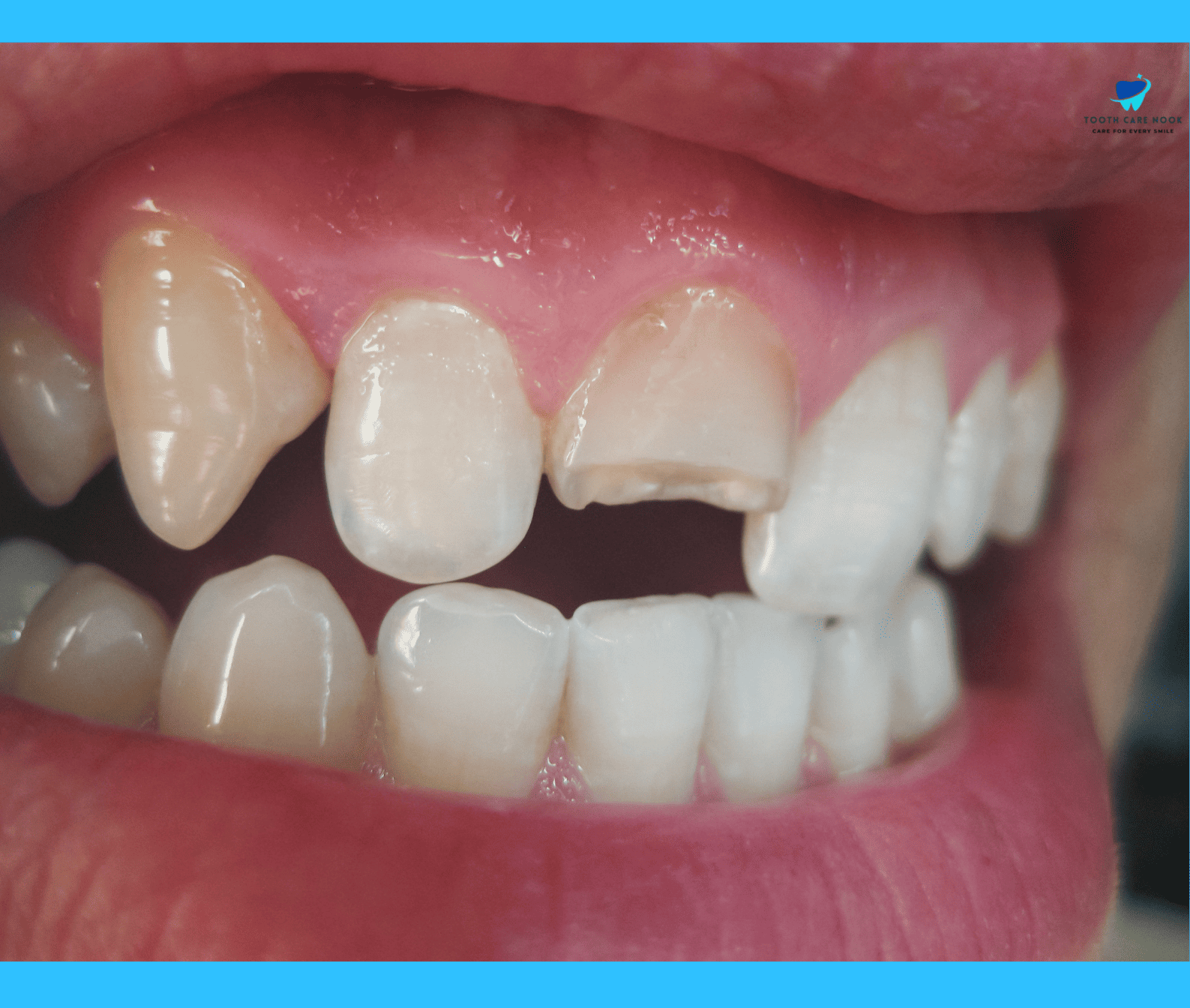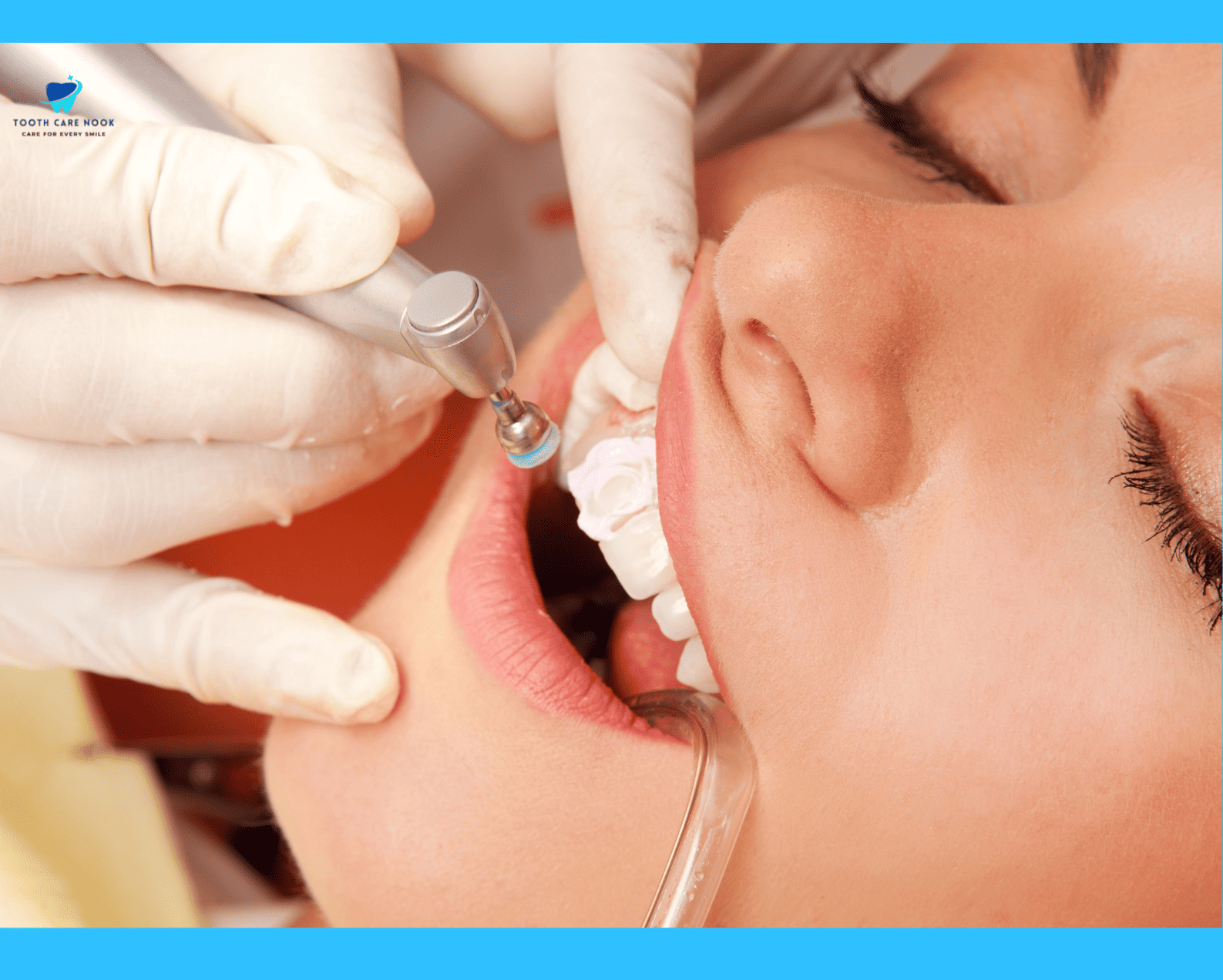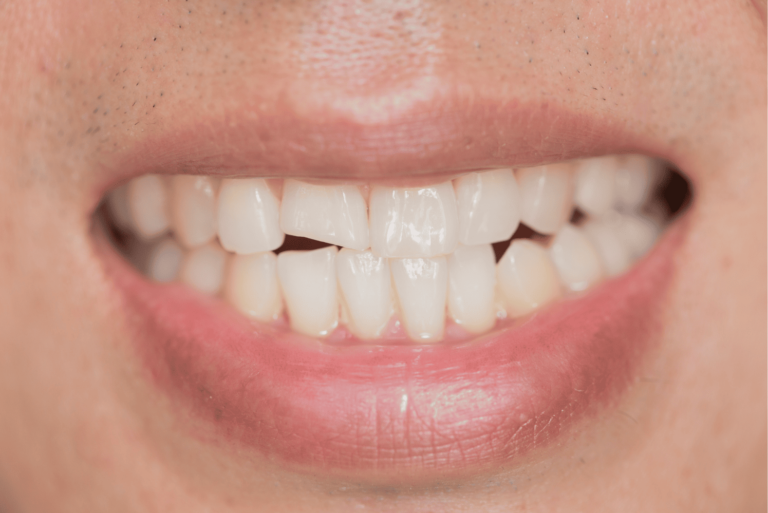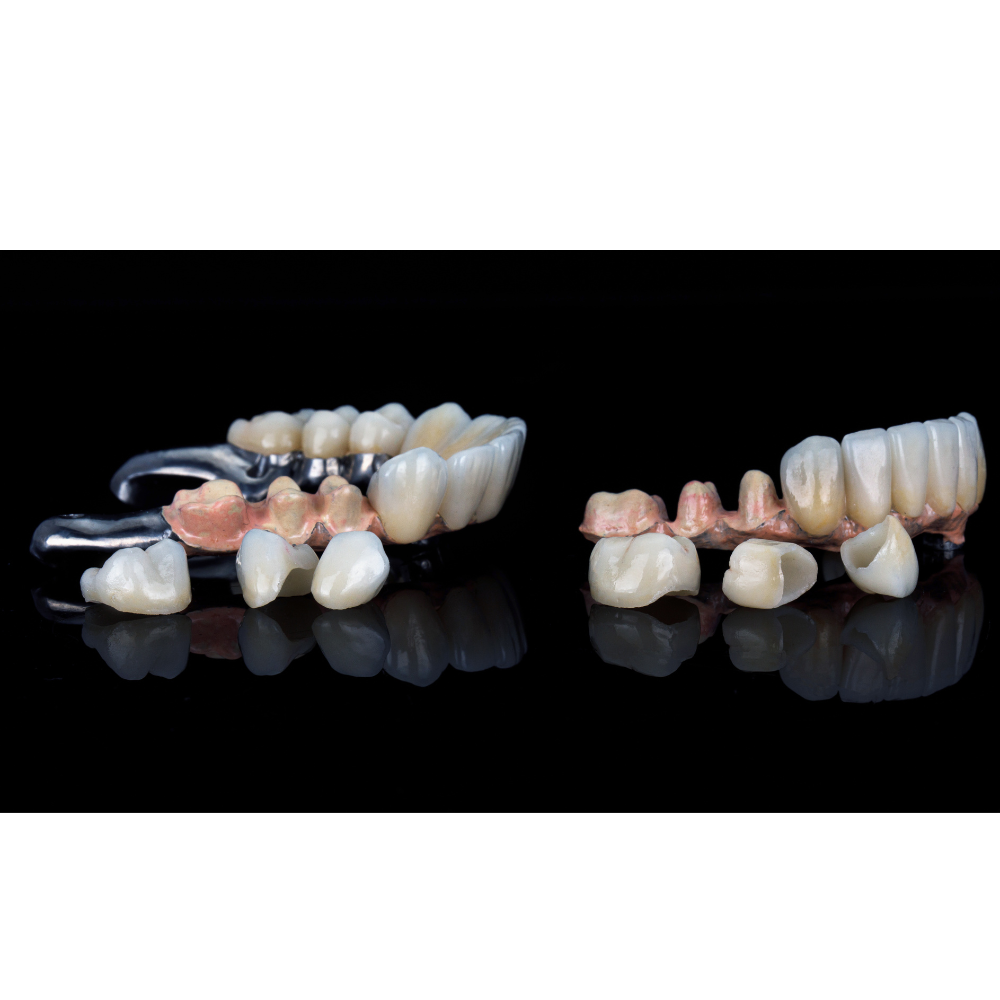Why Do My Teeth Keep Chipping | Know The Reasons, Treatment And All
Uh oh, chipped tooth again? You’re not alone. It happens to the best of us, and that little nick can be more than just a dent in your smile. It might be a sign of something else going on. We’ve all been there, enjoying a yummy treat, then BAM! A weird crunch and a sharp edge on your tooth. It’s enough to make anyone wonder, “Seriously, why do my teeth keep doing this?”
Don’t worry, this guide will be your chipped-tooth hero. We’ll know the causesof tooth chipping, what those chips mean for your smile, and how to keep your pearly whites strong and healthy.
What Is a Chipped Teeth?
A chipped tooth simply means a small piece of your tooth’s enamel has broken off. This can happen due to various reasons like biting down on hard foods, falls or accidents, and using your teeth for things other than chewing.
Are Chipped Teeth Common?
Yes, chipped teeth are quite common. They can happen to people of all ages. They can affect the appearance of your smile and sometimes cause sensitivity while not a major issue in most cases.
What Does A Chipped Tooth Look Like?
The chipped area will appear rough, jagged, or uneven as you can see in the following pictures:

Why Do They Keep Chipping?
The following are the reasons your teeth keep chipping:
Biting the Hard Stuff:
This is one of the main causes of tooth chipping. Biting on hard objects like ice, pens, or hard candies can lead to front teeth chipping. The force exerted during biting can cause the enamel to crack or chip, especially if other factors already compromise your teeth.
Teeth as Unintended Tools:
Using your teeth for tasks other than chewing like opening packages, bottles, or holding objects can cause them to chip or break. Our teeth simply aren’t built for these purposes.
Enamel Under Threat:
The enamel on your teeth acts as a protective shield. However, thin or weakened enamel is more vulnerable to teeth chipping. This weakening can be due to factors like age, diet, and dry Mouth.
Misaligned Bite:
If your teeth don’t come with malocclusion or you grind your teeth at night, it can put uneven pressure on your teeth which makes your teeth chip so easily.
Improper Dental Work:
Poorly done dental work, such as fillings, crowns, or veneers, can lead to front teeth chipping. If the dental restoration is not properly fitted or if inferior materials are used, the risk of chipping increases.
Prevention Tips
Go For Tooth-Friendly Foods:
Choose nutritious options rich in calcium and vitamin D, which are essential for strong teeth. Leafy greens, dairy products, and fish are great choices.
Say No to Hard Objects:
Avoid chewing on hard candy, ice, nutshells, or popcorn kernels.
Use Teeth Only for Chewing:
Don’t use your teeth for tasks like opening packages or holding objects.
Consider a Nightguard:
If you grind your teeth at night, a nightguard can prevent excessive pressure on your teeth and reduce the risk of teeth chipping.
How To Treat Chipped And Flaking Teeth?
Following are the ways to treat chipped and flaking teeth:
Smoothing or Polishing:
For the tiniest chips with minimal enamel loss, your dentist might simply smooth or polish the rough edge of the tooth. This is a painless procedure that restores a smooth surface.
Dental Bonding:
This is a common and cost-effective solution for moderate chips. Your dentist will roughen the chipped area to create a good bond. Then, a tooth-colored composite resin material is applied in layers and sculpted to match the shape and color of your surrounding teeth. A curing light hardens the resin. The dentist will polish the bonded area for a natural look.
Composite Resin Fillings:
These tooth-colored fillings are popular due to their natural-looking aesthetic. The procedure is similar to bonding, but the dentist might need to remove more tooth structures to create a secure foundation for the filling. Composite fillings are generally durable but might require replacement over time.
Porcelain Fillings:
These fillings offer excellent durability and stain resistance. They are a good choice for larger chips or when aesthetics are a major concern. The procedure might involve multiple appointments as the dentist creates a custom-made porcelain inlay or onlay to match your tooth.
Dental Crown:
A dental crown is necessary for severe chips or fractures that reach the inner pulp. This is the most comprehensive restoration option.

FAQs
What Vitamin Deficiency Causes Teeth Breaking?
A lack of vitamin D and calcium can contribute to weakened tooth enamel, making it more susceptible to teeth chipping or breaking.
How Common Are Chipped Teeth?
Chipped teeth are quite common! They can happen to people of all ages due to accidents, using teeth for unintended purposes, or having thin enamel.
Is It OK to Live With A Chipped Tooth?
Small chips might not be a major issue, but they can:
* Affect the appearance of your smile.
* Cause sensitivity to hot, cold, or sweet foods and drinks.
* Increase the risk of further damage if left untreated.
Can I Ignore A Chipped Tooth?
It’s best not to ignore a chipped tooth. Must see a dentist to:
* Assess the damage
* Discuss treatment options
* Prevent further complications



